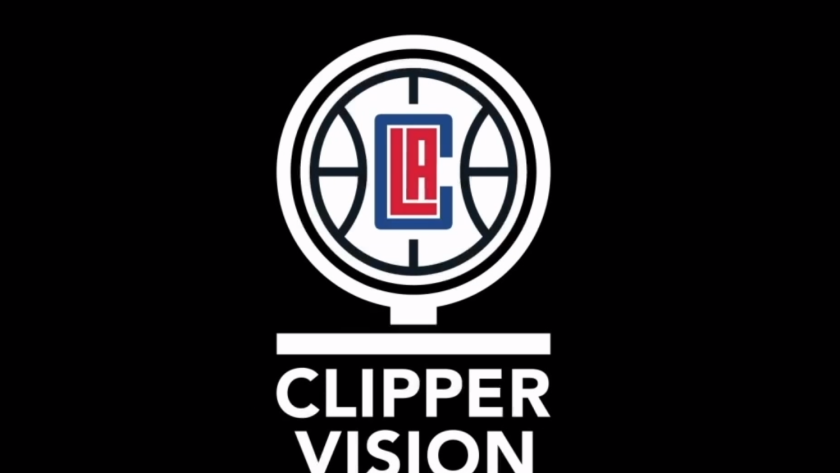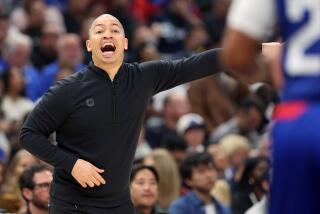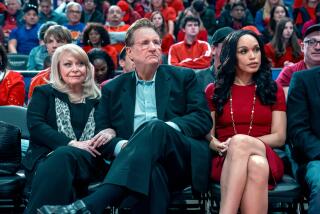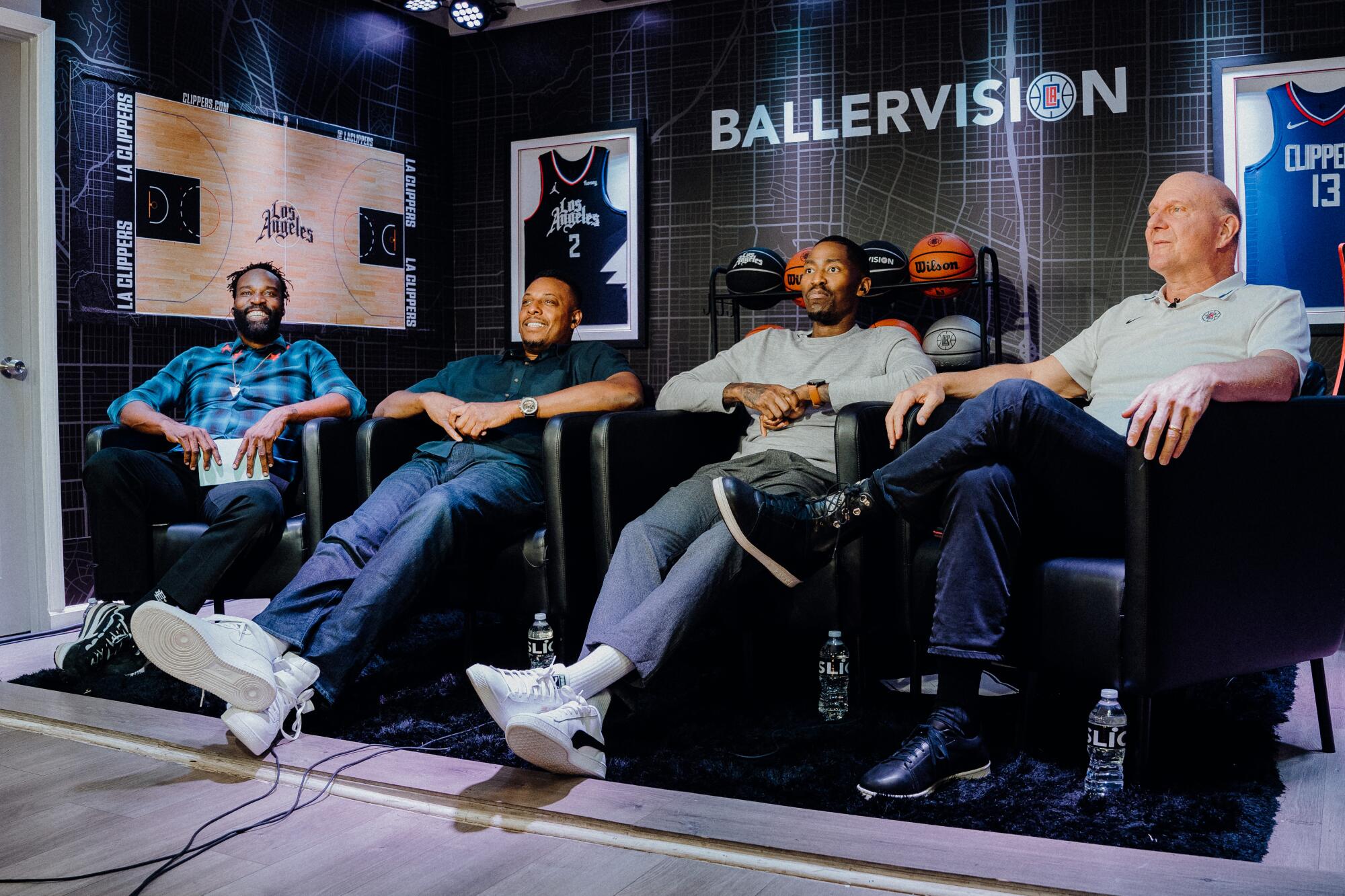
After the Clippers’ television deal with Bally Sports expired this summer, some fans wondered on social media why Clippers owner Steve Ballmer, whose tech background fueled a wealth unmatched by any other owner of a professional team in North America, didn’t simply start his own channel to broadcast the games.
Ballmer had thought about changing the televised sports-viewing experience since his time at Microsoft and tested new broadcast ideas since buying the Clippers in 2014. He and Second Spectrum, a Koreatown-based sports analytics company, unveiled Clippers CourtVision, which added new modes to the regular cable-subscription broadcast in 2018 such as one displaying the probability of a shot taken by a certain player at a certain spot and another using animations to liven up dunks and big plays. One of his great desires is finding a way to show viewers exactly what a player sees on the court.
All along, Ballmer said, he wanted not only to change the form of an NBA broadcast but also its delivery. When the team’s TV deal came up this summer, he saw opportunity.
“I said now we are going streaming,” Ballmer said. “We are going to do the darn thing.”
The Clippers have now gone streaming, and that thing has a name: ClipperVision, a streaming service customers can purchase to watch Clippers games directly, without a cable subscription. The app offers six different live streams per game, ranging from the Bally Sports+ feed, live commentary in Korean and Spanish, an augmented-reality mode and the so-called “BallerVision,” which will feature multiple guests such as former NBA players Jamal Crawford, Baron Davis, Paul Pierce, Quentin Richardson and Matt Barnes reacting casually to the game action.
ClipperVision, which the team unveiled Monday, is essentially the fourth and final piece of its broadcast package this season. Eleven games will be carried on KTLA’s over-the-air signal, a choice made by the team to maximize its viewership with a new audience. Bally Sports, the team’s longtime cable partner, will air 63 games. National networks claimed exclusive broadcasts for eight games. And starting with Saturday’s road game at Sacramento, 74 of the 82 games will also be available to watch live on ClipperVision.
“This is our channel,” Ballmer said. “Starting in the year 2022, would somebody really say, ‘Hey, I want to do a new cable channel’? No. They’d say, ‘I want to do a new streaming service.’”
Ballmer said he could envision a future in which a team could take all of its local broadcast rights and put them on its own streaming service, bypassing the need for a cable-based regional sports network partner, but that wasn’t an option this time because ClipperVision is so new and the team didn’t want to shrink its audience.
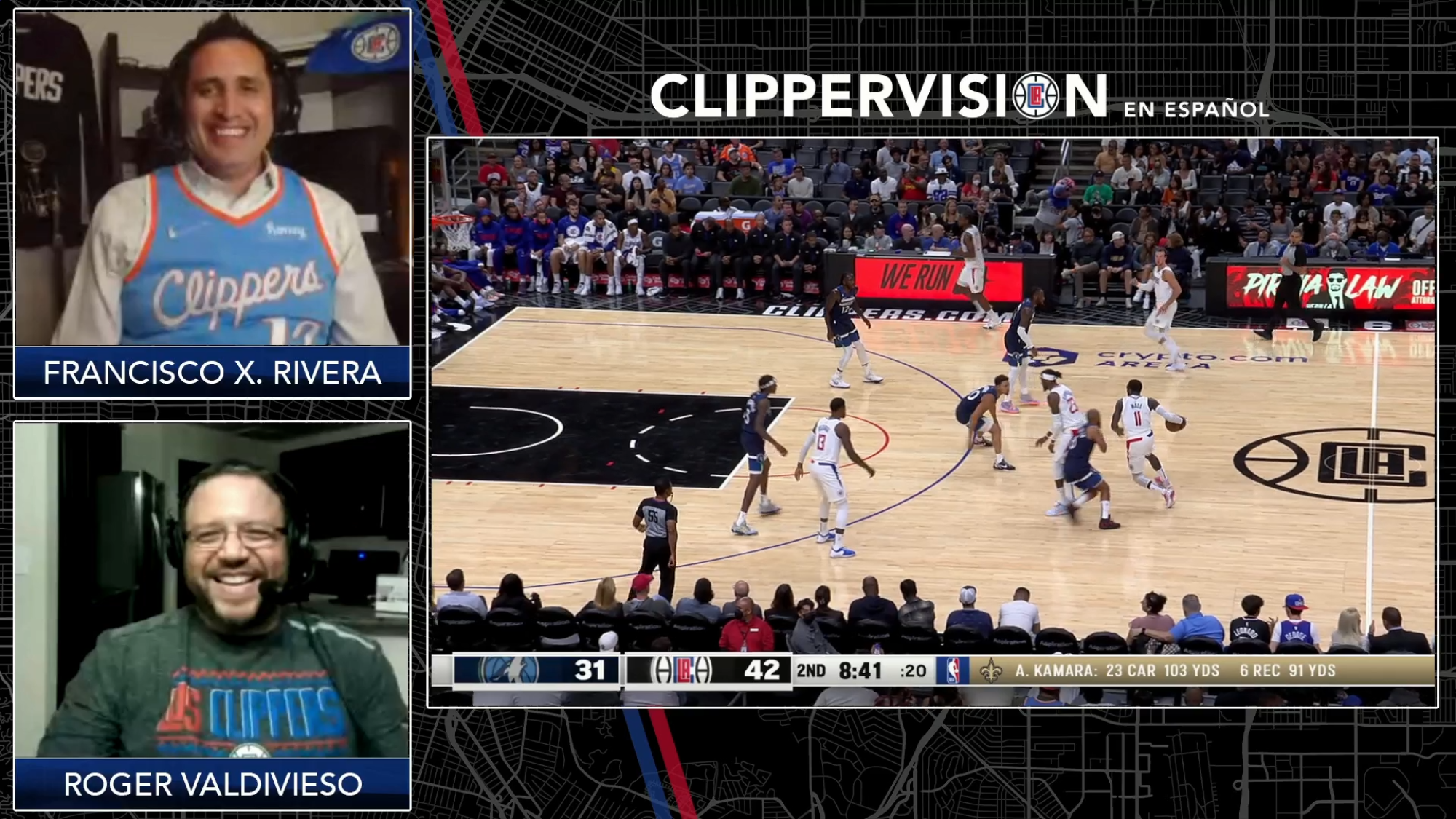
ClipperVision exists, in part, because the team hopes to capture what it sees as a growing audience — younger viewers who don’t have cable.
“We do have a bunch of young people who are cord-cutters or cord-nevers and they can’t be Clippers fans today; at least they can’t experience the Clippers,” Ballmer said. “I mean if they’re lucky enough, they may go to a game a year but they can’t watch our games. I mean frankly when I talk to our players and say, I talk about the streaming idea they say, ‘Yeah, most of our friends don’t have cable. This will work pretty well.’”
The service costs $199 for a season pass — monthly plans are not currently offered — though there is a limit in who can purchase it: Only fans in the Los Angeles viewing zone, which stretches from Bakersfield to San Diego, Hawaii to Las Vegas. Clippers fans outside that “geo-fence” would still be required to watch by purchasing League pass, the NBA’s own streaming service. League Pass customers will be able to access the Korean and Spanish live streams, but not ClipperVision’s augmented-reality and BallerVision modes.
Unlike League Pass, which blacks out all local and national broadcasts for teams in a customer’s geographic area, ClipperVision allows fans within its Southern California-and-beyond TV footprint to watch Clippers games, said Gillian Zucker, the team’s president of business operations. That sits at the core of a business model aiming to capture younger generations who view a cable or satellite subscription as anachronistic.
The Korean-language feed features commentary from analysts calling the game live from Korea. The Spanish-language analysts, Francisco X. Rivera and Roger Valdivieso, are based in Southern California. Those feeds were chosen, Zucker said, because of local demographics and the potential for viewership abroad.
To see how well it might actually work, Ballmer settled into a plush chair on Oct. 9, with an earpiece in his right ear, inside a makeshift studio created in a corner of a Los Angeles compound owned by Davis, the former UCLA and NBA star. A 15-minute drive away, at Crypto.com Arena, the Clippers were preparing for a preseason game against Minnesota. To Ballmer’s right sat Davis, Pierce and Crawford for a test broadcast of the “BallerVision” feed.
Initially, “BallerVision” was going to be available for only select games through the app.
The Clippers are launching an app with a streaming service that has six interactive displays for watching game broadcasts on your mobile devices.
“Most people starting out say, ‘Let’s do only a few things,’” Zucker said. “Steve said, ‘We can’t do a few games. We have to do every single game.’ It was completely obvious, but it completely changed the landscape of what we had to stand up.”
If the traditional studio booth, with its play-by-play and analysis, feels like a highly produced stage show, the allure of “BallerVision” — and other versions before it that have used the format on other networks, such as NBA TV’s “HooperVision” commentary to Peyton and Eli Manning’s brotherly back-and-forth soundtrack to “Monday Night Football” — is its intimacy, an experience akin to eavesdropping on a conversation.
At times during the Oct. 9 test broadcast, the studio inside Davis’ compound felt like a confessional. Ballmer rubbed his hands together with anticipation before tipoff of the test broadcast. He yelled “Batum, baby!” after a play made by the team’s 15-year veteran forward, Nicolas. He said he wished Minnesota had played star offseason acquisition Rudy Gobert. He described growing up in Michigan not knowing what basketball was until he was 11.
“It feels good,” Ballmer said of the health of the franchise, “but we haven’t won a championship. My wife likes to say something to me I just, I always spew vinegar, whatever the expression is: She says, ‘A lot of owners, most owners have never won a championship.’ And I said, ‘That’s not us.’
“The truth is we haven’t won one yet. We’ve had good teams. The first team we had that Jamal was on? That was a heck of a team. We weren’t able to go very far. God that, you remember that Houston series?”
“Up 3-1,” Crawford said.
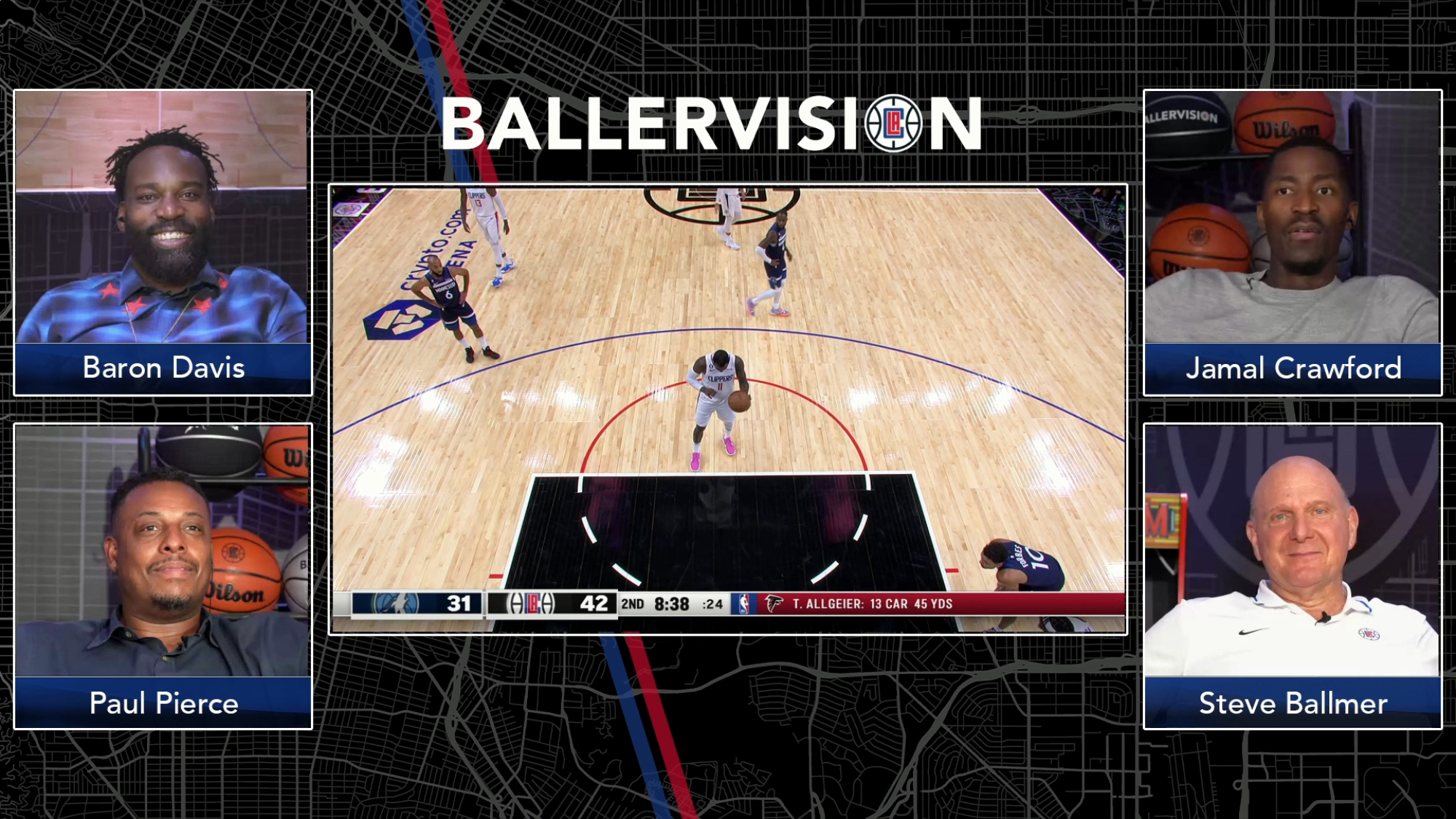
“Oh my gosh!” Davis said.
“After beating the defending champs in the first round?” Crawford said. “That was the one opportunity to me that was like — that was the one.”
“I will tell you this about the Clippers,” said Pierce, the Inglewood native and 2008 NBA champion with Boston. “I’ve been watching the Clippers my whole life being a guy from Southern California. Since Steve has gotten to the Clippers, they’re actually trying to win a championship. Actually trying. I don’t think before they were trying.”
Ballmer is not sure whether he would return for a real “BallerVision” broadcast. He prefers to watch games live, from the front row. At one point during the test broadcast, Davis looked three chairs to his left at Ballmer.
“I just want to sit next to you at a game,” Davis said.
“You kind of are!” Ballmer said.
More to Read
Get our high school sports newsletter
Prep Rally is devoted to the SoCal high school sports experience, bringing you scores, stories and a behind-the-scenes look at what makes prep sports so popular.
You may occasionally receive promotional content from the Los Angeles Times.

